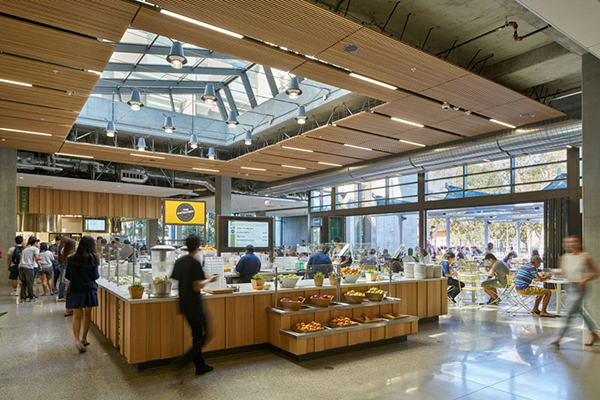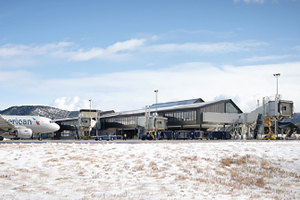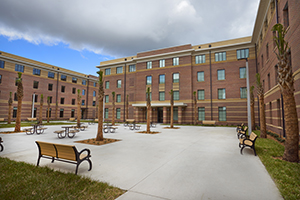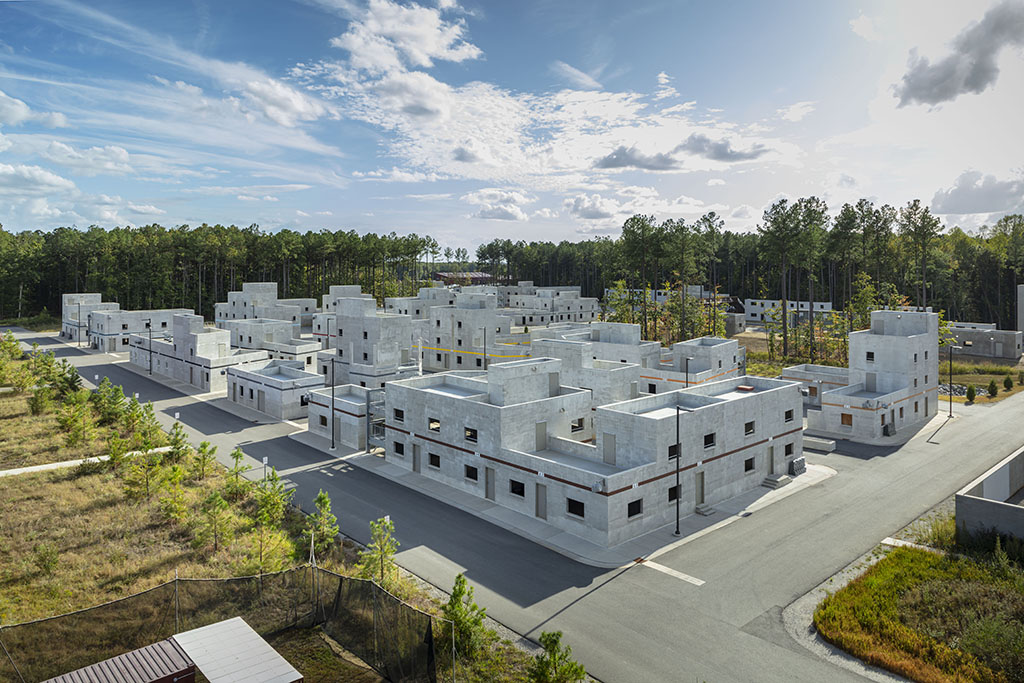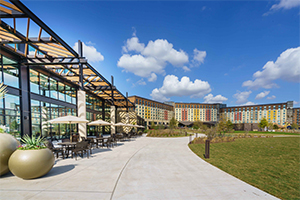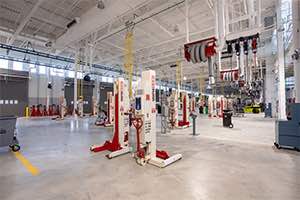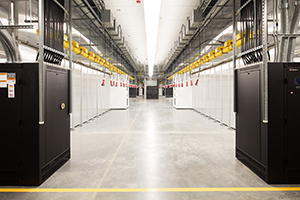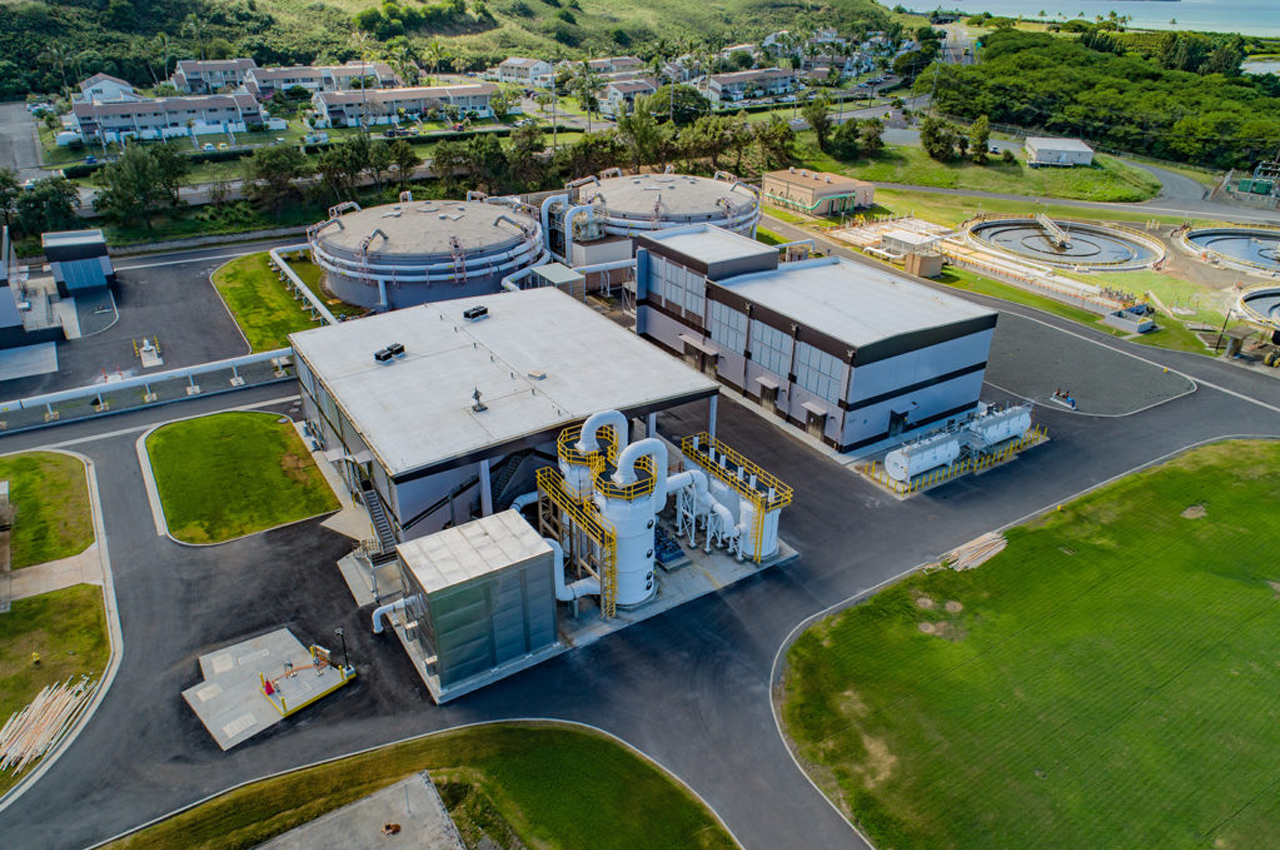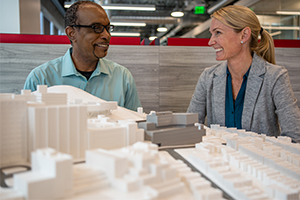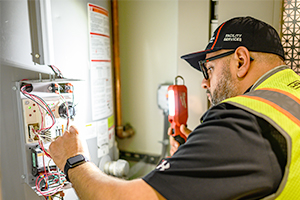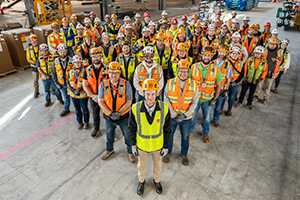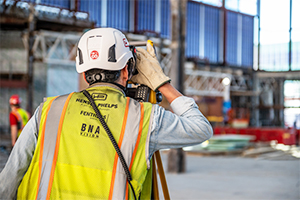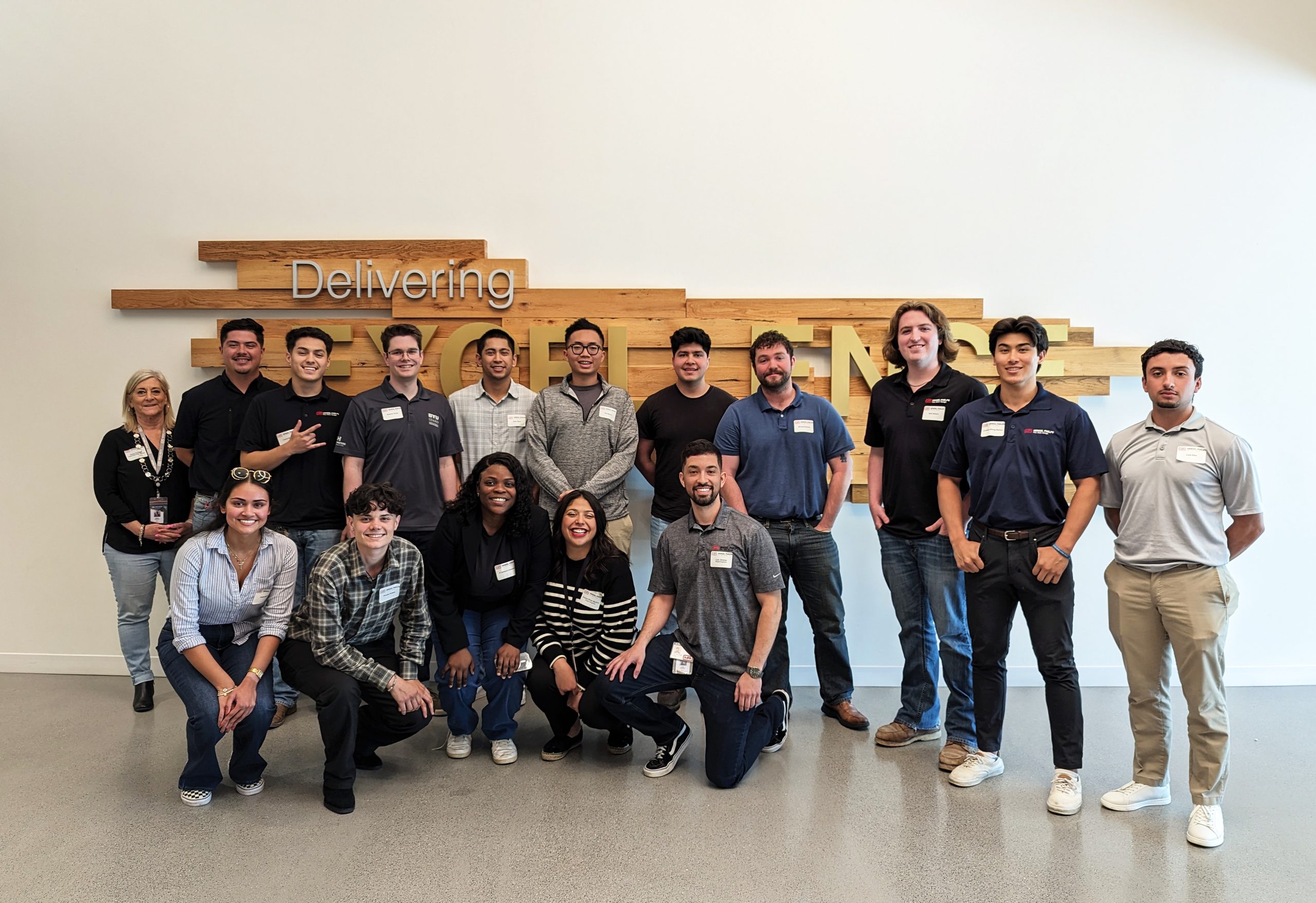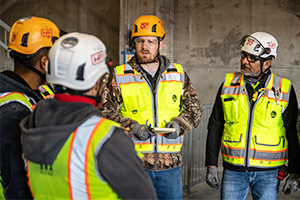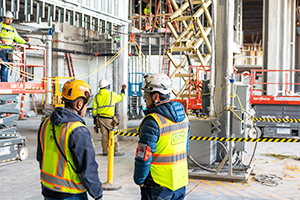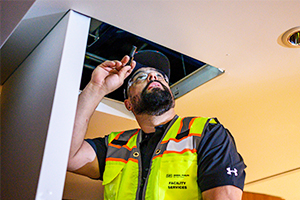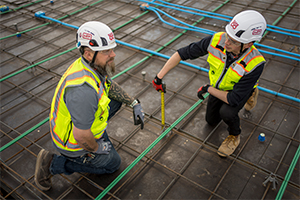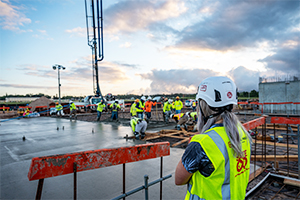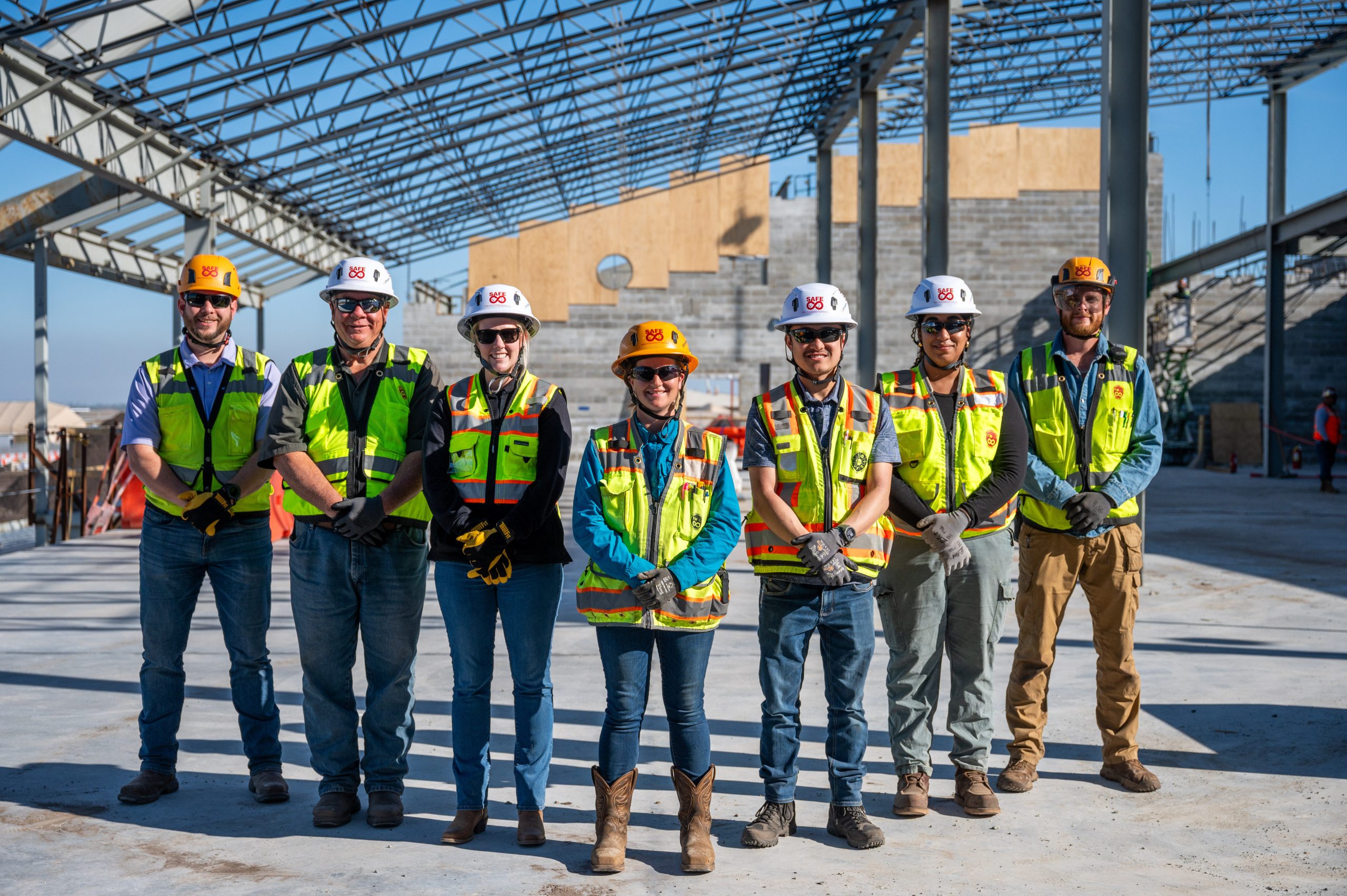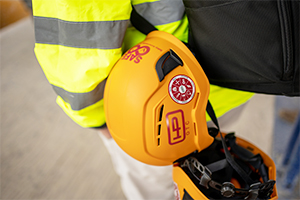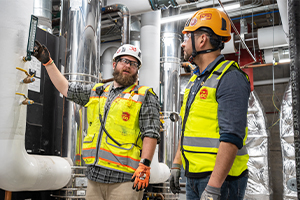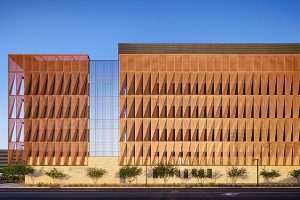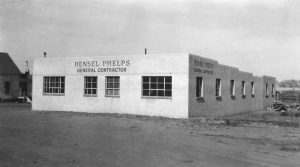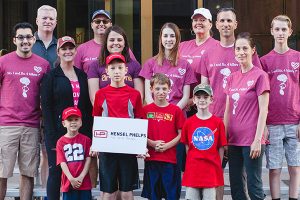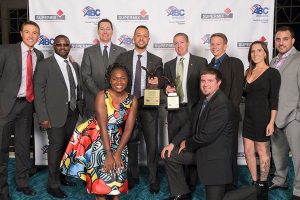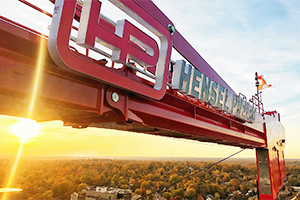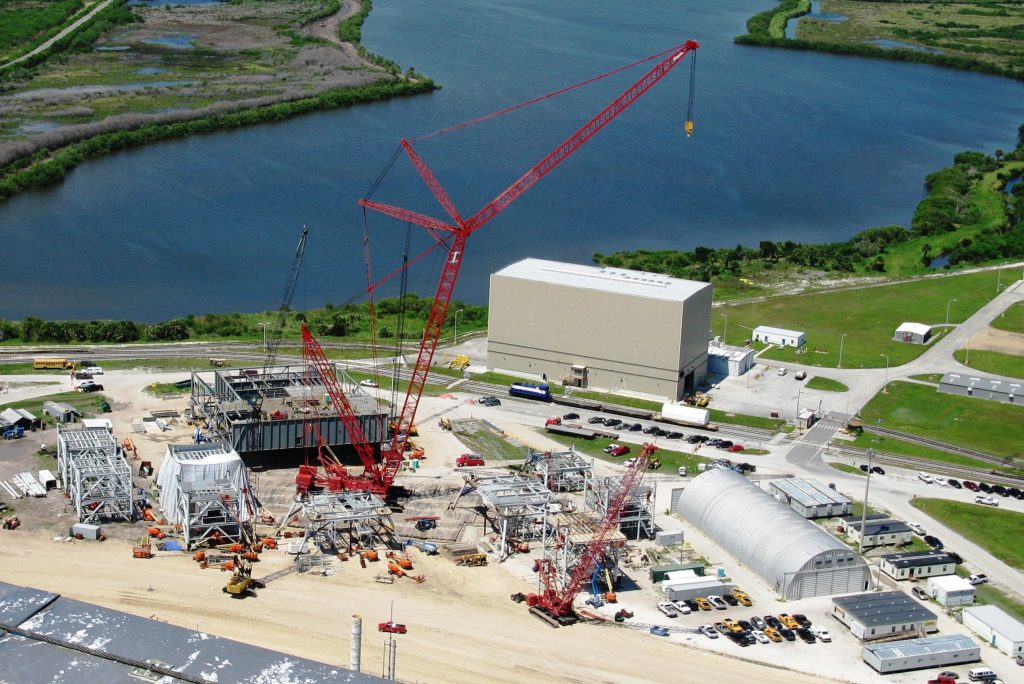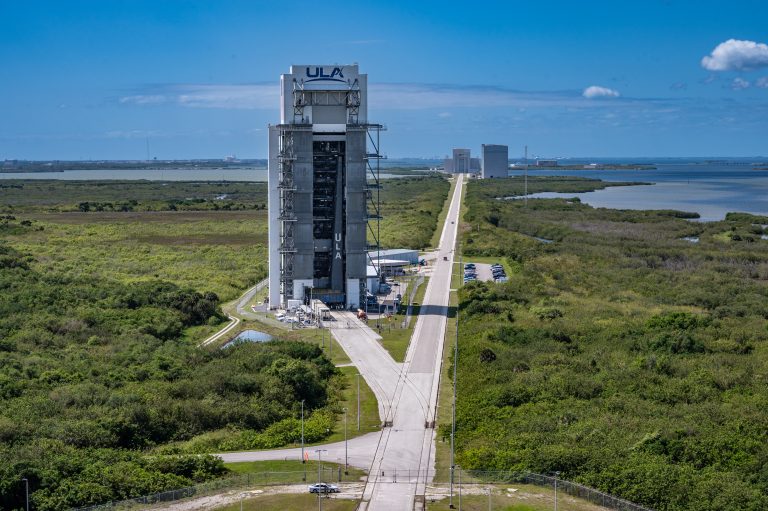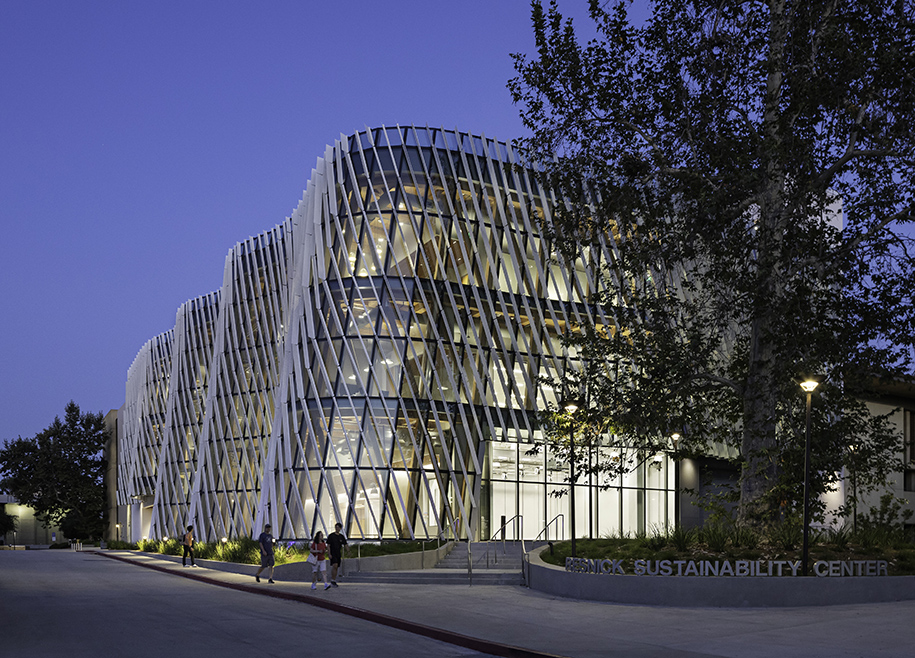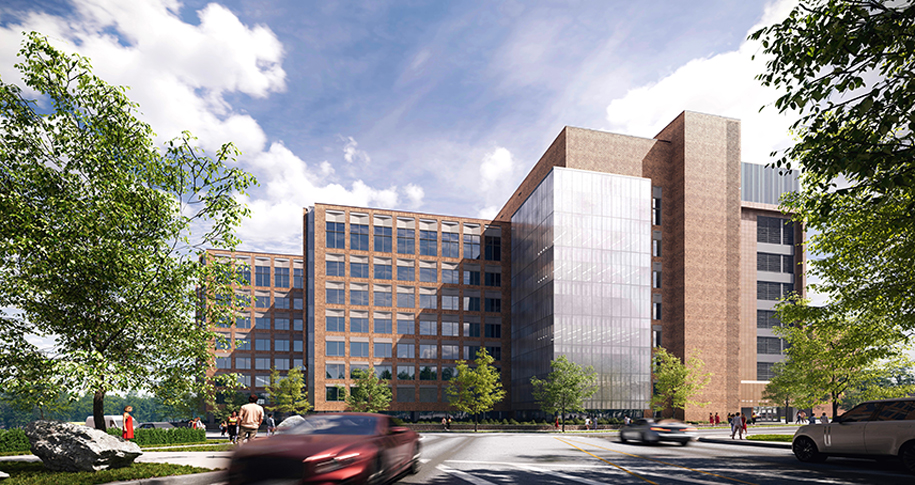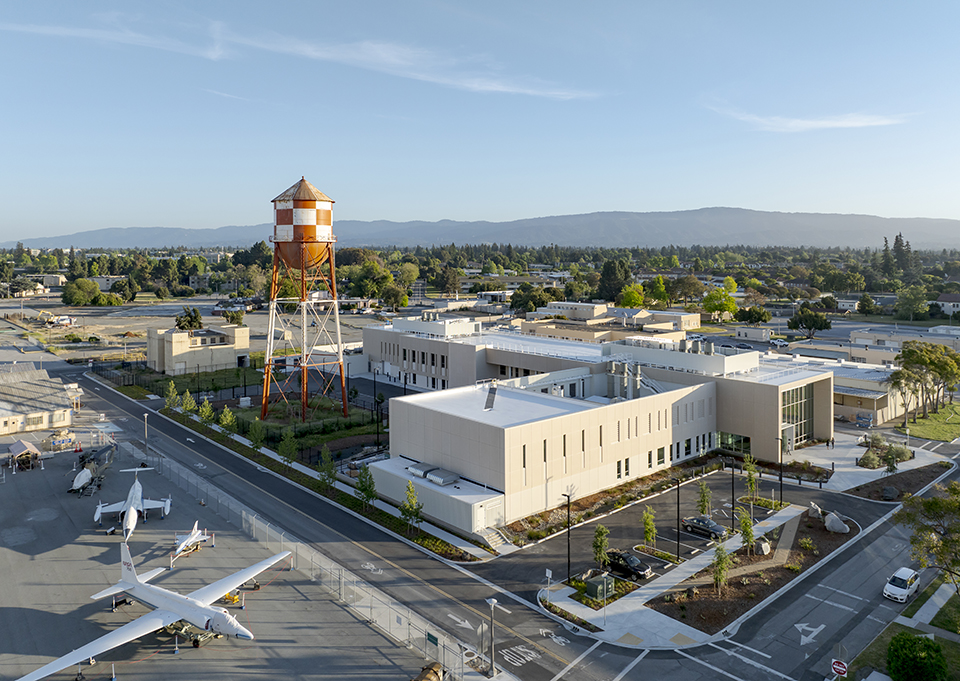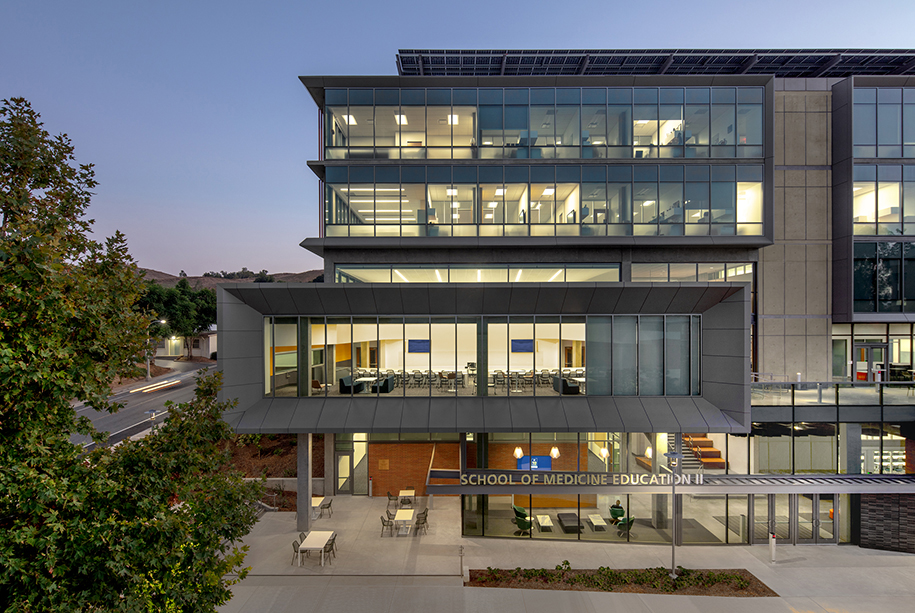About the Project
Originally built in 1964, the Radiation Physics Building, also known as Building 245, hosts research vital to our nation’s healthcare, environmental monitoring, radiation protection and industrial processing. The National Institute of Standards and Technology (NIST) modernization project’s contract consists of multiple task orders completed in 2023. The team has been awarded eight task orders, with the Hensel Phelps Design-Build Team being awarded the contract based on our winning approach to task order one, an addition dubbed the H Wing. This addition provides uniquely equipped modern laboratory space and its completion is vital to providing swing space as the team moves into later phases where work will be focused within the existing building.
Task Orders 1-5
Hensel Phelps took great care to minimize disruptions to ongoing research throughout the construction of Task Order 1. The H Wing aligns with the existing Building 245. The addition uses a mat foundation that reduces the possibility of differential settlement. The structural configuration of the addition consists of a robust concrete frame, offering enhanced floor loading and vibration mitigation. The superstructure meets a baseline vibration criteria velocity of 2,000 micro-inches per second. The addition also includes 2,500 SF of Class 100 cleanroom space.
The scope of work for Task Order 2 includes designing and constructing the D Wing addition, which totals $25.6 million. This addition includes a precast facade built around a new concrete structure that consists of a new plumbing room, mechanical room, laboratory space and cleanroom that connects to an existing laboratory. Due to the laboratory operations occurring adjacent to the construction of D Wing, extensive coordination and communication were required to allow the ongoing science to operate within the laboratory and ensure the safety and welfare of the construction personnel due to the radioactive sources that were being used at different times.
Task Order 3 consisted of the design and construction solution to replace the existing A Wing electrical service room within A100 and the associated transformer yard. This also included providing a new main and emergency electrical room.
Task Order 4 includes the IT systems for H Wing, totaling $828,000. The IT systems include data and communications, like wireless access and new fiber throughout. The security systems for the H Wing addition are included in Task Order 5.
Task Orders 6-7
Task Order 6 includes fully renovating existing spaces that have been in continuous service for 50 years. The spaces include radioactive labs, administrative spaces, open offices and a mechanical penthouse. This scope also includes abatement, demolition and interior and exterior upgrades to the existing C-Wing of Building 245. The above grade three-story and penthouse section of C-Wing has been fully demolished and converted into three stories of open office concept space for the researchers. In addition to interior upgrades, the exterior façade of the C-Wing was upgraded to comply with energy standards. Task Order 7 included a new roof for the E-wing.
Task Order 8
Task Order 8 includes renovating the remaining lab space and sub-grade waterproofing repair at the basement and sub-basement levels, each with a unique geometry and configuration. During the proposal phase, we teamed with a dewatering and watering infiltration expert and a waterproofing trade partner to review and develop concept methods to repair/replace the waterproofing based on the varying conditions applied to exterior only, interior only, or on both faces. In addition, they provided input on phasing, scheduling and budgeting.
The completion of Hensel Phelps’ work on-site at NIST allows the scientists there to continue serving diverse business, agriculture and security interests while incorporating upcoming technologies.
The Hensel Phelps | ZGF team provided NIST excellent design-build services with specific attention to detail, coordination, safety and quality control. Early on, the team worked alongside the end-users to ensure the finished laboratory space meets their exact needs. Utilizing BIM technology, the Hensel Phelps | ZGF team facilitated 3D virtual walk throughs with the researchers to help them interact with and visualize their completed facility.
– Robert Vaugh, National Institute of Standards and Technology
Challenge
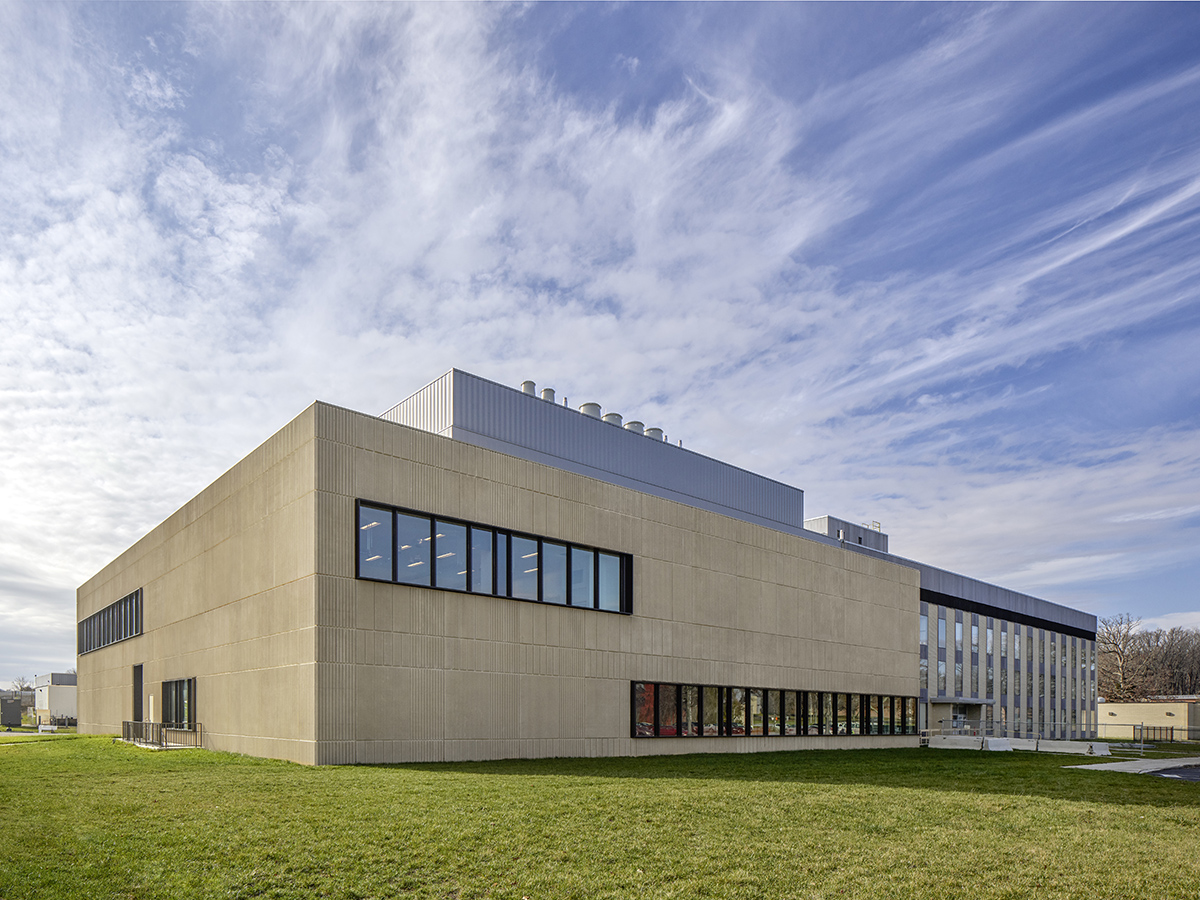
Meeting the Needs of Various Research Groups
Value, functionality and efficiency were NIST’s top design drivers for the NIST Building 245 Modernization. All design decisions focused on creating a functional, pragmatic and cost-effective building that supports the technical requirements for scientific research and will serve NIST for at least the next 50 years. In addition, the design-build team was tasked with meeting the needs of several different research groups. A challenge to the design-build team was managing the needs of the individual researchers while respecting NIST’s design. drivers
Solution
Researcher Engagement During the Design Phase
To ensure the researchers’ needs were met, the design-build team made a large effort to engage NIST’s 12 lead researchers during the design phase. These individuals oversee multiple labs, each specializing in a different type of research, therefore requiring specific nuances and space for efficient research. The team involved the 12 lead researchers in the design process through individual interviews and design reviews. These were used to extract each user’s specific needs and were then applied to the finished laboratory designs. The team facilitated various tours and 3D walk-throughs of the designed lab spaces, allowing researchers to interact with their laboratories.
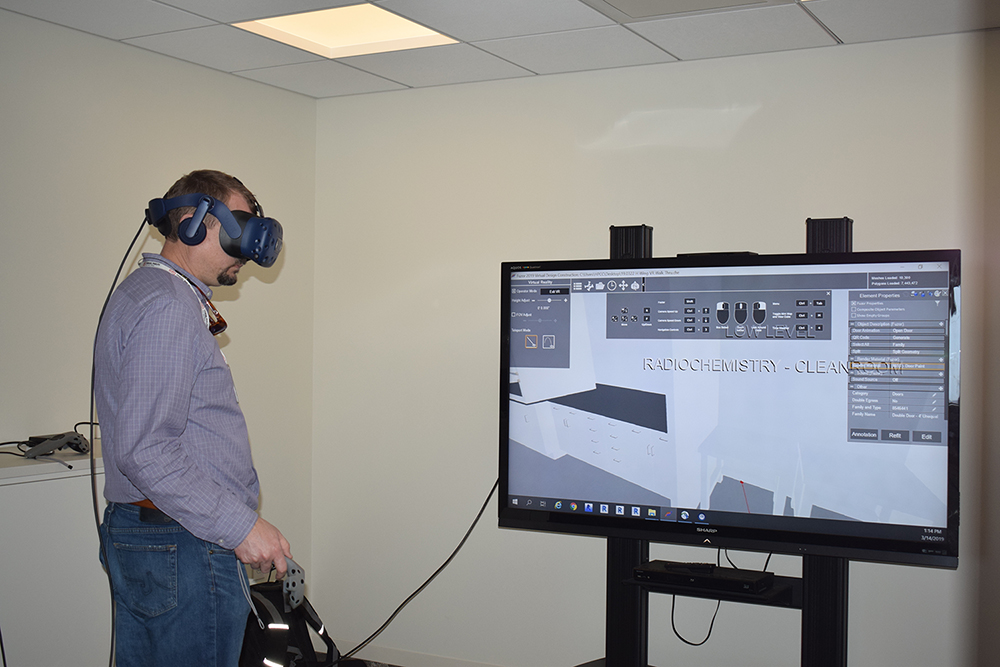
Result
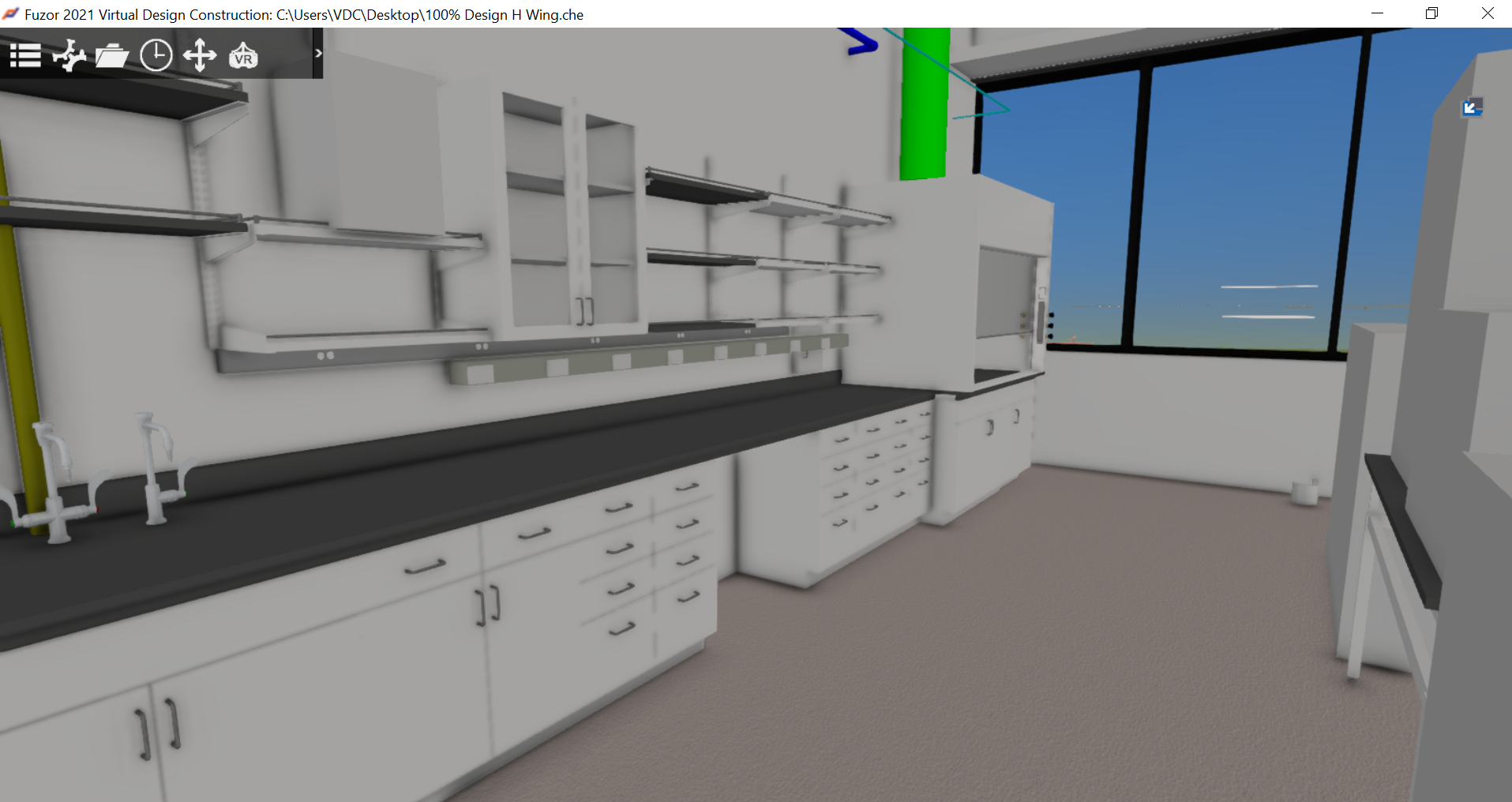
Meaningful Impact on the Design Process
The staff’s feedback had a significant impact on the design process and, as a result, changes were made to the laboratory designs. The involvement of customer staff in design specification and review places an extraordinary burden on staff time. Accordingly, for this process to proceed efficaciously, staff need to be involved early and given plenty of time to formulate meaningful input to the design process. This process was tremendously successful in allowing researchers to visualize their space. They were able to provide input to adjust their laboratory design to best fit their specialized needs as well as feel reassured that their new space would serve them effectively.
Awards
2022
- Associated General Contractors of America: Build America Award, Design-Build project
2021
- Engineering News Record Mid Atlantic, Excellence in Safety Award
- Design-Build Institute of America Mid Atlantic Region, Honor Award
- Design-Build Institute of America Mid Atlantic Region, Excellence in Engineering Award


